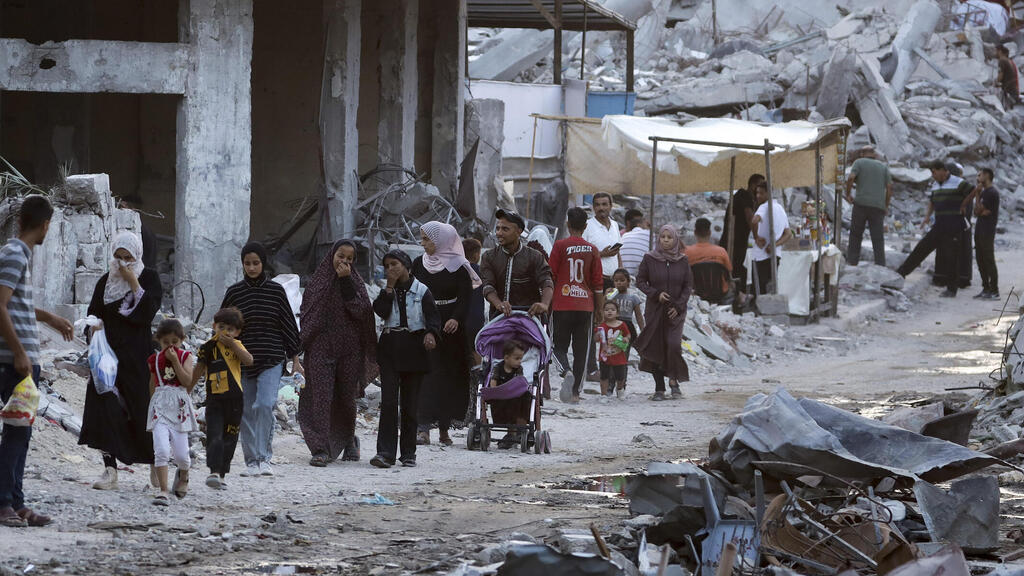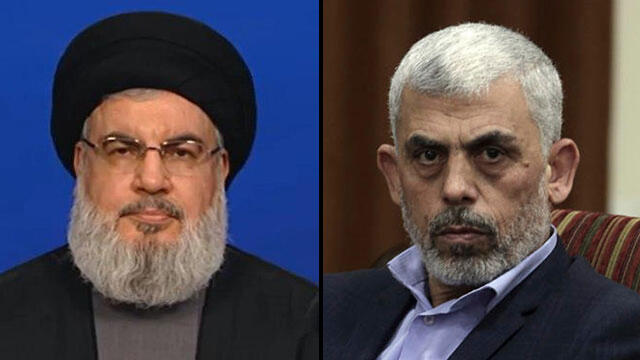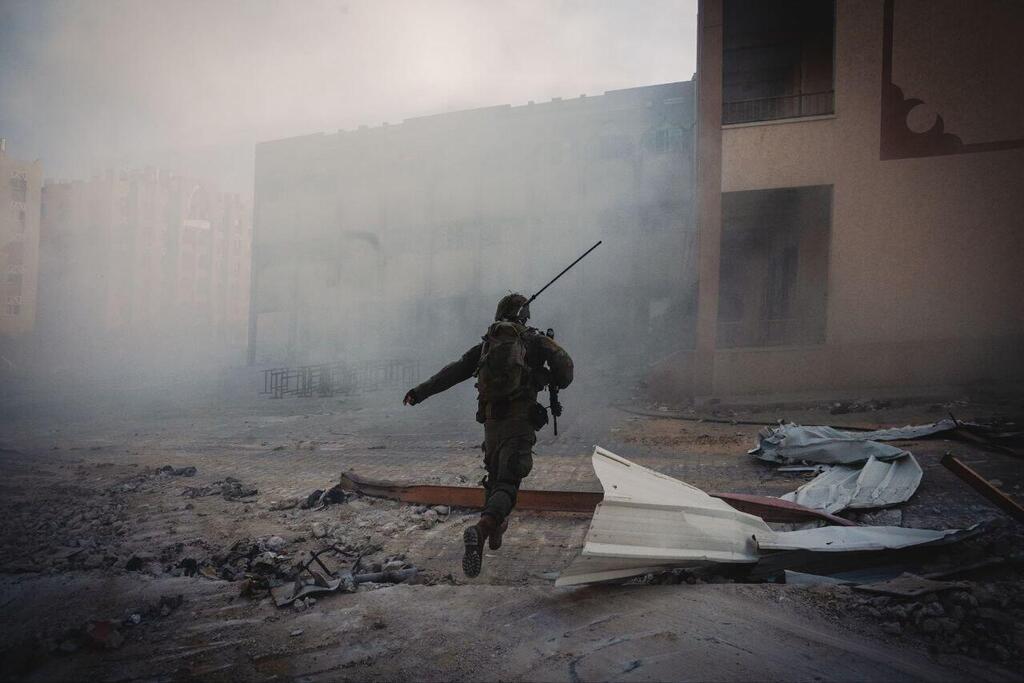Getting your Trinity Audio player ready...
The report published on Thursday in the Washington Post about an interim administration in the Gaza Strip, agreed upon by Israel and Hamas if a deal materializes, signals a significant shift, assuming it is accurate. Firstly, it indicates that Israel is earnest about ending the war as part of the proposed hostage deal and prepared to transition to the "day after" while Hamas is relinquishing its civilian governance of the Strip post-war, thereby, at least on paper, fulfilling one of Israel's war objectives: the collapse of Hamas's rule in Gaza.
According to the Washington Post, this change is expected to occur from the second phase of the deal, where young hostages, including emergency squad members, soldiers and young people of draft age who were kidnapped from the Nova festival, would be released. In the third phase, the bodies of hostages would be returned, and Hamas – if the report holds true – would no longer be the civilian ruler in Gaza.
The report was authored by David Ignatius, the senior political commentator of the Washington Post, who is considered highly reliable. He says that Hamas has agreed to give up civilian control of the Strip, which will temporarily transfer to Palestinian elements that are neither Hamas nor representatives of the Palestinian Authority under President Mahmoud Abbas, but rather reliable individuals already vetted by Israel. Ignatius emphasizes that Israel will not assume control of Gaza under any circumstances, meaning the option of temporary Israeli military rule in the Strip is off the table. Consequently, plans for resettlement in Gaza by far-right figures such as Finance Minister Bezalel Smotrich and National Security Minister Itamar Ben-Gvir cannot come to fruition.
The identity of these Palestinian elements remains unclear and is likely still under negotiation. However, it probably involves former officials of the Palestinian Authority, residents of Gaza who operated under the governments of Yasser Arafat and Abbas until Hamas seized control of the Strip in July 2007. These individuals are supporters of the Fatah movement and continue to receive salaries from the PA despite most of them being unemployed (Hamas replaced them with its own people as heads and workers of the civilian administration mechanisms in the Strip).
Thousands of these Gazans identifying with Fatah will, under this outline, staff the civilian administration institutions in the Strip, overseeing education, health, infrastructure and more. Notably, Hamas hinted several months ago in interviews with Arab journalists that the terror organization no longer desires to govern Gaza. Even during the war, Hamas leaders said that they "do not necessarily have to head the civilian administration of the Strip."
Behind this concept lies Hamas' longstanding intention to mimic Hezbollah's operational model in Lebanon. If it does not govern and is not responsible for the welfare and needs of the civilian population, it can focus and invest all its resources on "resistance," which means preparing for war with Israel. As the strongest military force in Gaza, it essentially dictates what happens behind the scenes, with civilian officials acting as its executors. This is how Hezbollah operates in Lebanon, and this is what Hamas envisions for Gaza post-war – hence its willingness to relinquish civilian control.
According to the outline published by the Washington Post, alongside the civilian administration, there will be a security force funded and operated by the U.S. and Arab countries such as the United Arab Emirates, Egypt, Jordan, and possibly others like Morocco. It is crucial to understand that this will not be a peacekeeping force like UNIFIL in southern Lebanon but a police and law enforcement force that will not consist of American soldiers. Arab soldiers also are not expected to participate and it will be made up of mercenaries hired by American and other private security companies to safeguard humanitarian aid, oversee its distribution, prevent looting and perform general policing and law enforcement tasks in the Strip.
Outsourcing security
In Iraq, for example, after the the allied forces removed Saddam Hussein in 2003, the U.S. administration brought in units of mercenaries from the Georgian Republic and South American countries like Colombia. Polish and other soldiers also guarded government institutions and American facilities in Iraq enforced law and order. This appears to be the model the U.S. intends to implement in Gaza. It should also be noted that Saudi Arabia and the United Arab Emirates regularly employ foreign mercenaries in their armies – some from Pakistan, some from Jordan, and some from Colombia.
This will likely be the security force in question. The wealthy Arab states will provide the funding and international legitimacy, and possibly also commanders within this force and the new security mechanisms in the Strip's administration, but these will not be regular units of Arab armies stationed in Gaza.
A pressing question in this context is who will ensure that Hamas does not rebuild its military forces under the auspices of the new civilian and military administration, that it does not dig tunnels, produce weapons, or realize its ambition of becoming like Hezbollah in the Gaza Strip. The answer, according to the Israeli plan, is that the IDF, in the third phase of the fighting – after the war ends – will conduct raids and maintain operational and intelligence freedom in Gaza to locate and strike Hamas and Islamic Jihad efforts to reorganize.
The IDF, as it currently does in The West Bank in coordination with the PA, will gather intelligence and conduct raids. The Shin Bet will primarily function as an intelligence and counter-terrorism unit, while the IDF will launch attacks. It is self-evident that there must be close coordination between the IDF and the new security and civilian administration forces that will replace Hamas in the Strip.
Negotiating this arrangement will be fraught with difficulties and obstacles, as the devil is always in the details. However, if this "day after the war" plan materializes, Israel will no longer have to implement its plan for humanitarian bubbles. Hamas will no longer govern Gaza from a civilian standpoint, hopefully allowing Israel's defense establishment to assume complete control of the border and allowing residents of the south living along the border with Gaza to return home. One must hope this outline will be fleshed out in negotiations and that the political echelon will ensure its implementation as written and intended.
First published: 16:06, 07.11.24




